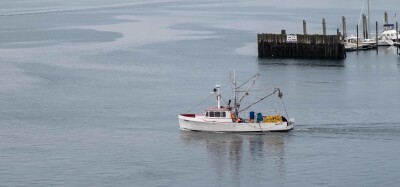In a letter to Paula A. Kerger, President and CEO of Public Broadcasting Service (PBS) which is attached and pasted below, the Seafood Coalition pointed out the inappropriateness of a publicly funded network using glaring distortions to hype an upcoming PBS miniseries.
Dear Ms. Kerger,
We in the U.S. commercial fishing industry have for the most part become inured to the distorted, mean spirited and too often self-serving attacks on domestic fish, domestic fishing and domestic fishermen that if not encouraged are definitely facilitated by a “news” industry that seems to put a much greater premium on shock value than on journalistic integrity. However, like most of our fellow citizens, we have felt that PBS has remained above that particular fray, being fortunate enough to be the recipient of significant public support.
Speaking for our membership, which is composed of the leaders of trade organizations that represent fishermen, processors and dealers who handle well over half of the fish and shellfish landed by U.S. vessels in U.S. ports, we were shocked by a promotional spot for your new series Wild. In it researcher Jeremy Jackson indicted by implication every U.S. fisherman – recreational, commercial, or party/charter – and the federal fisheries management system that we are and have been heavily invested in making the best in the world since the passage of the Magnuson-Stevens Fishery Conservation and Management Act in 1976.
Dr. Jackson started off by displaying three photographs of anglers, boat crews and dead fish. The first showed a dozen or so very large grouper. The second showed perhaps fifty not so large grouper, snapper, jacks and porgy. The third showed seven fish, possibly bonito. He then said "there's just no way that one can misinterpret what's happened here, which is that we've eaten all of these (first picture) and we've eaten all of these (second picture) and now all we have left is these (third picture). These are emblematic of a panoply of gigantic creatures that used to live here."
Read the full story at Saving Seafood>>






